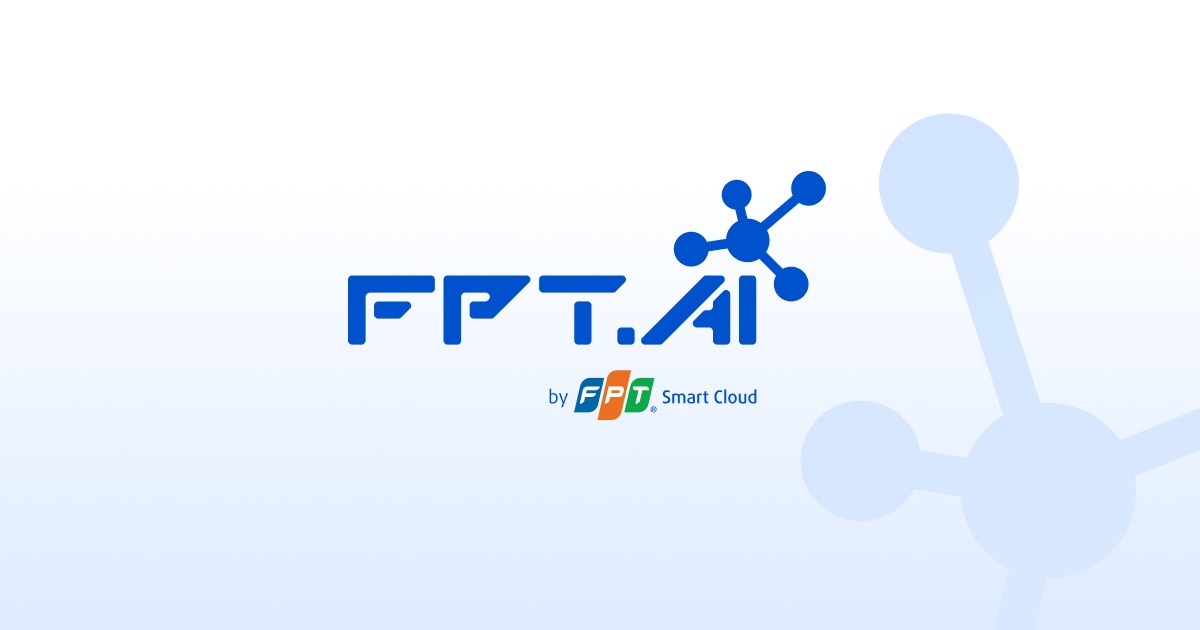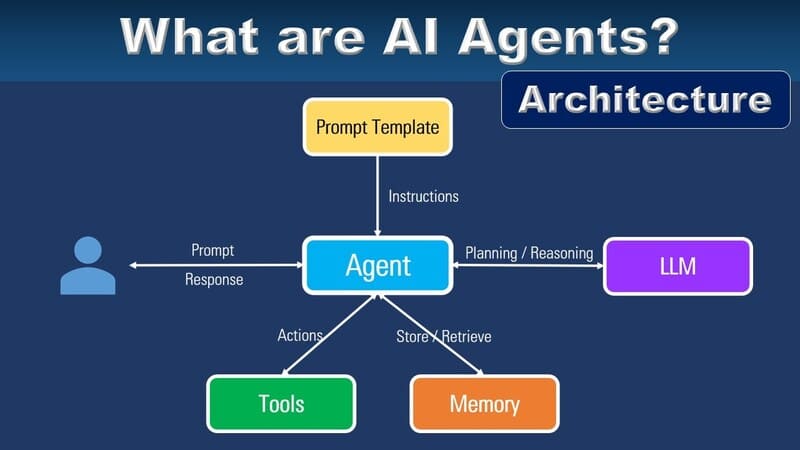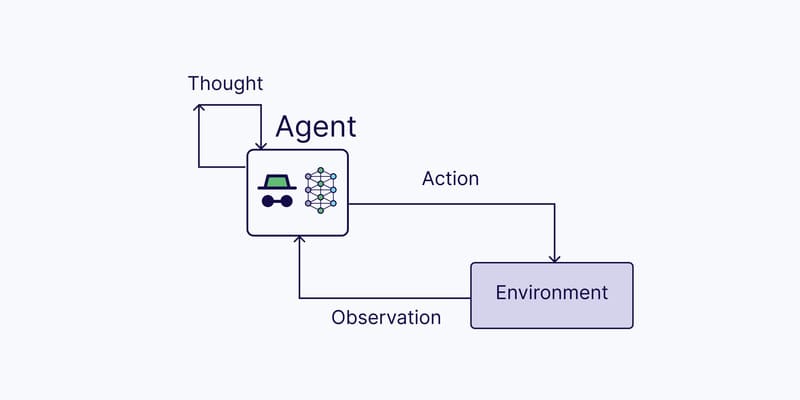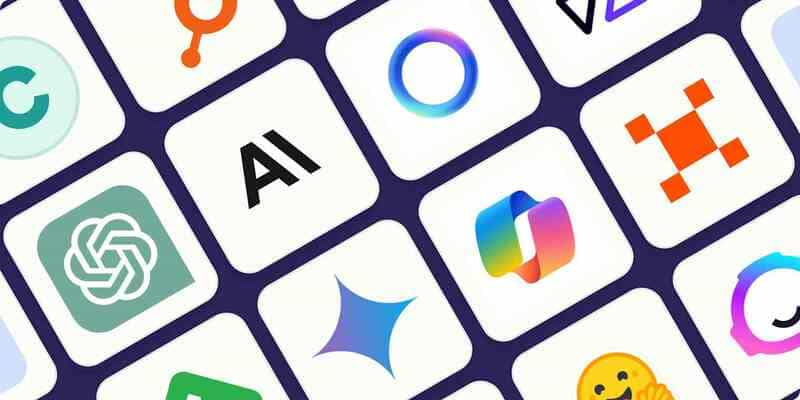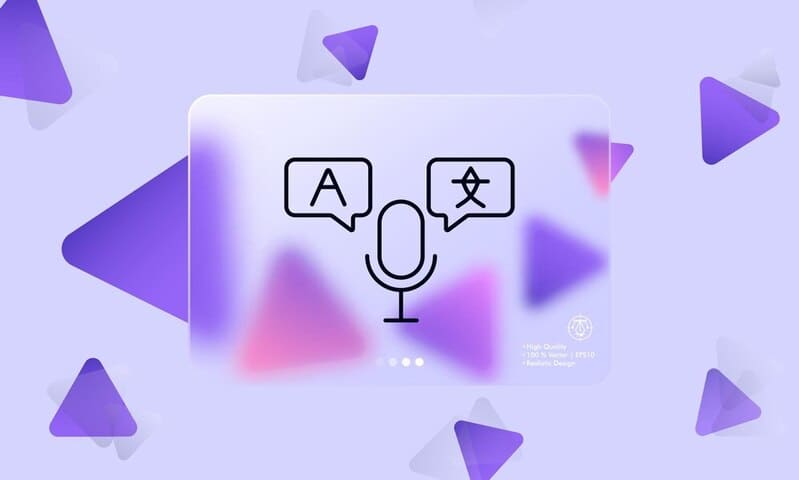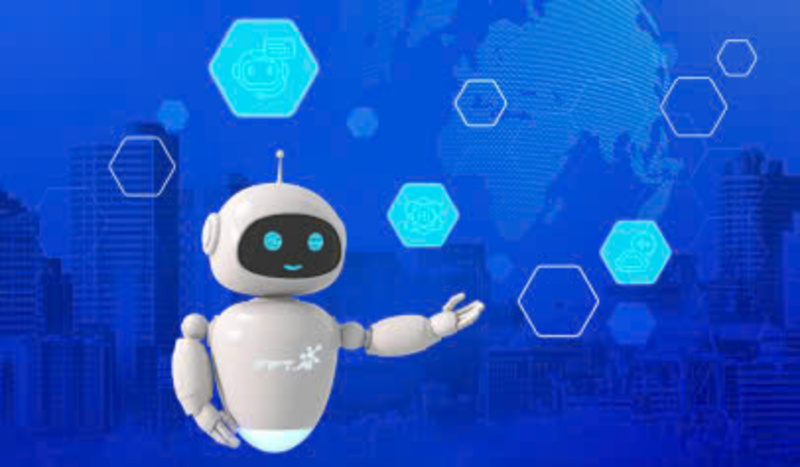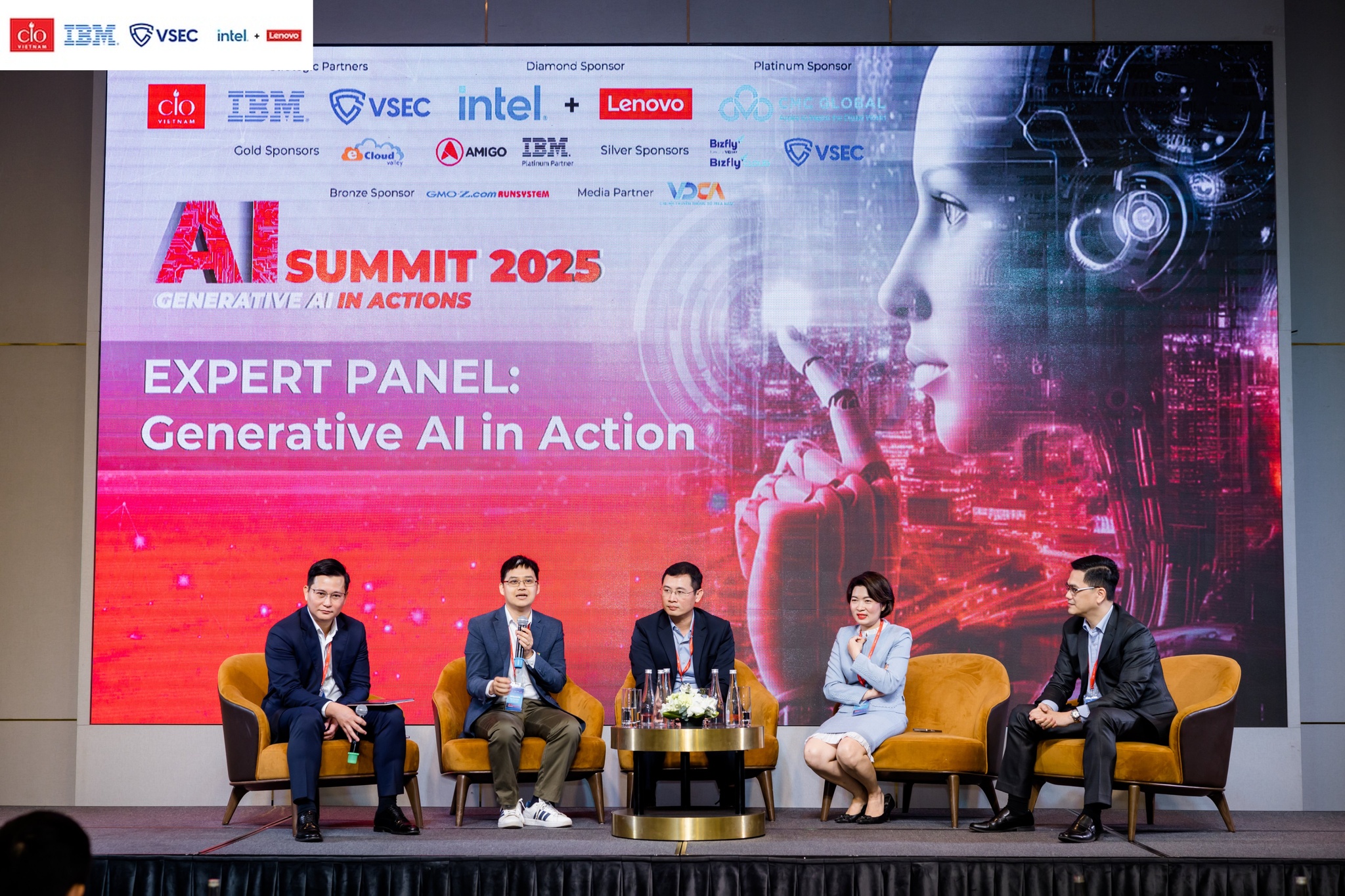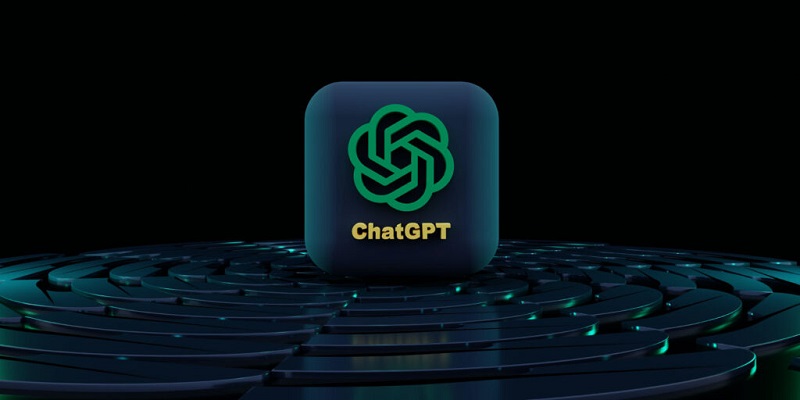Artificial Intelligence (AI) is reshaping our world at a rapid pace. From optimizing business processes to supporting critical decisions, AI offers infinite potential, fostering a synergy between AI and humans. However, alongside its immense benefits, AI also poses significant challenges, especially concerning ethics. The question is no longer “How will AI develop?” but rather “How should AI develop responsibly?”.
This is where AI ethics becomes a timely and urgent topic, not only for technology developers but also for regulators, businesses, and society as a whole. Let’s explore what AI ethics is with FPT.AI!
What is AI Ethics?
AI ethics is a set of principles, values, and guidelines that aim to ensure the transparent, fair, and responsible development, deployment, and use of artificial intelligence. According to UNESCO, AI ethics doesn’t just focus on what the technology can do, but also revolves around the questions of “What should AI do?” and “How should we use AI to benefit humanity, rather than cause harm?”.
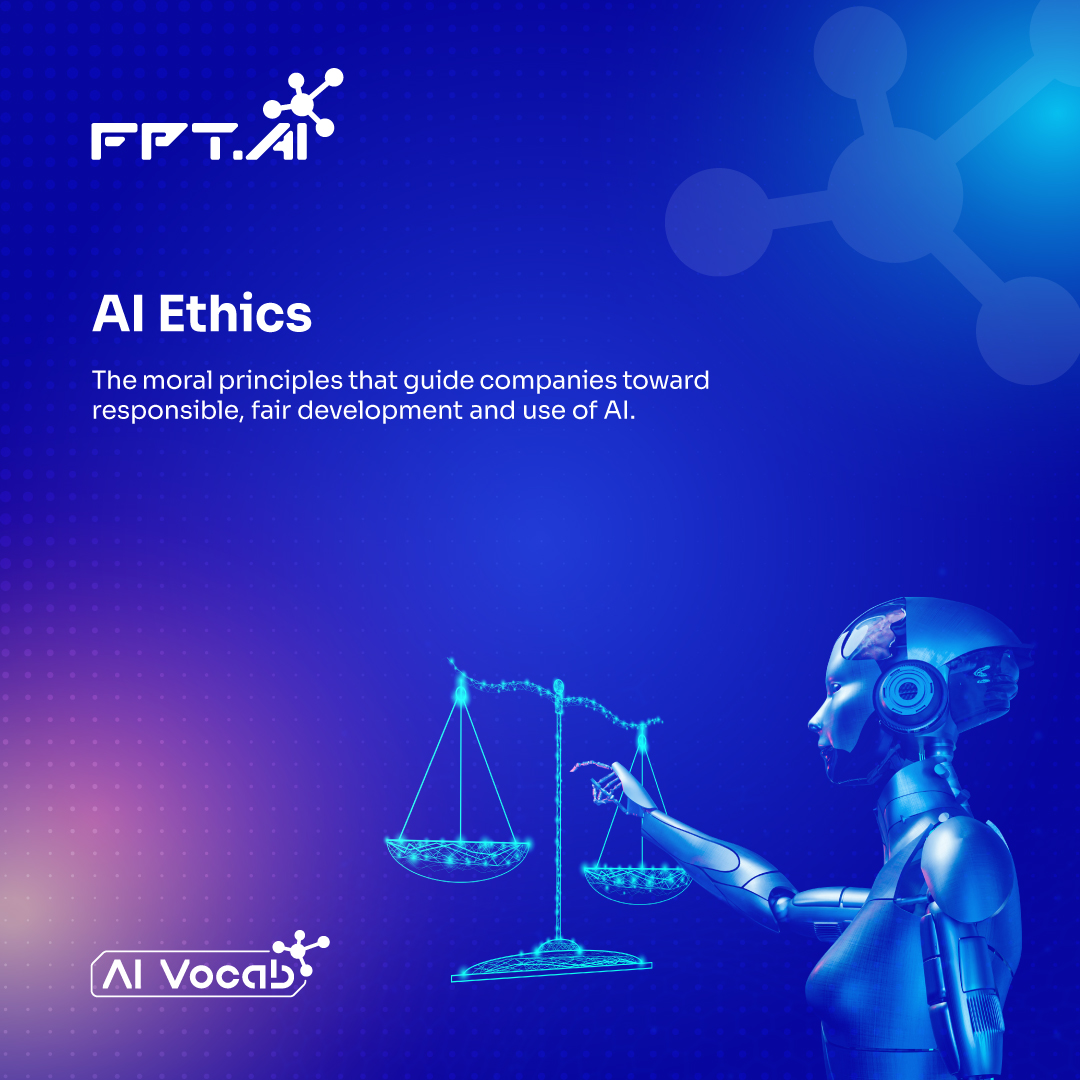
Why is AI Ethics Important?
AI is no longer merely supporting technology. It’s a powerful tool capable of making decisions. According to Deputy Minister of Science and Technology, Mr. Bui The Duy, AI is completely different from any other technologies that humans have found before. While old technological products only follow existing instructions, AI can create its own directions, beyond the control of developers.
Furthermore, AI has now become an indispensable partner for humans. A global study involving approximately 32,000 workers from 47 countries by The University of Melbourne showed that over 58% of employees actively use AI in their work, with one-third of them using AI weekly or daily. .
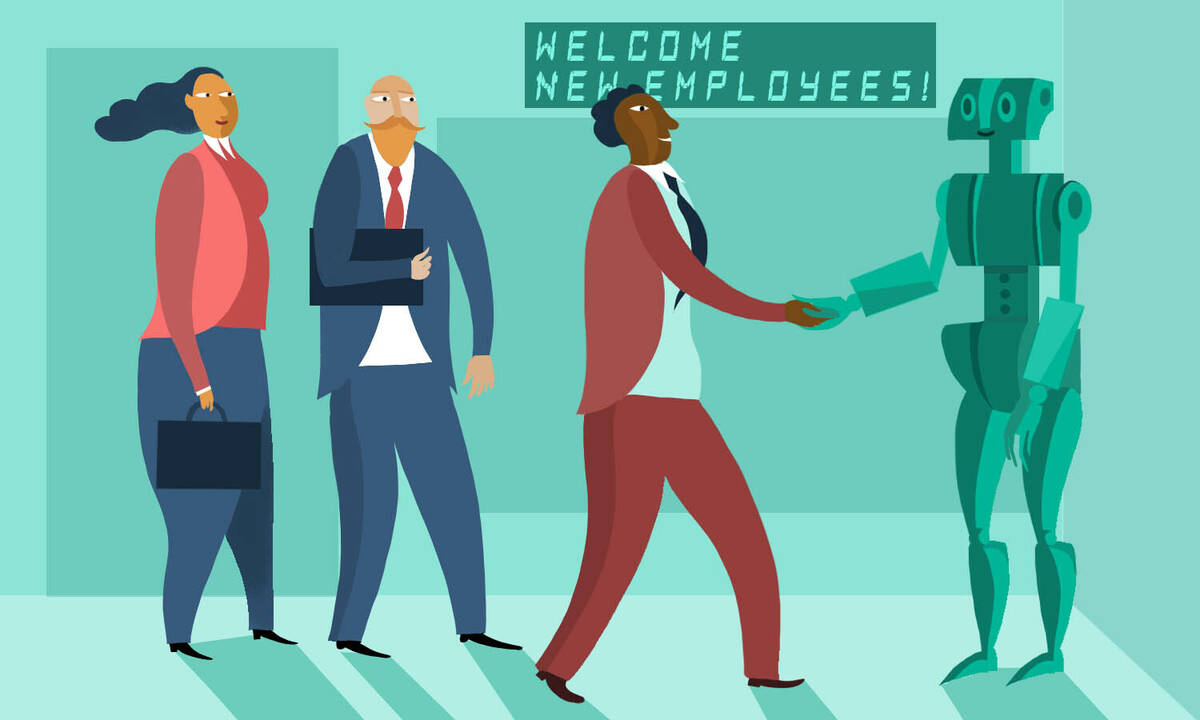
Therefore, without ethical oversight, sometimes wrong decisions made by AI can have far-reaching impacts on individuals or even a nation. An algorithm could reject a job application simply because their resume came from a rural area, implicitly assuming they are “less promising.” A facial recognition system could misidentify people of color due to a lack of diverse data. A chatbot could learn discriminatory language from social media users if left unchecked.
These examples highlight that if AI lacks ethics, the consequences will not be limited to technical errors but will also lead to social, legal, and humanitarian consequences.
Core Values Shaping AI for the Future
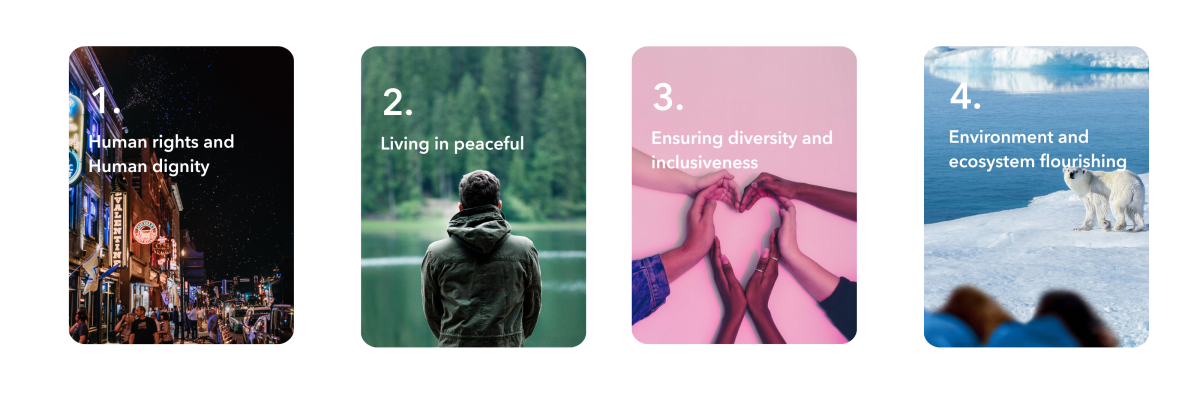
In the journey of artificial intelligence development, what’s important is not just how far technology advances, but which direction we are leading it. To ensure AI serves the common good, for people, society, and this planet, UNESCO has outlined four core values that act as guiding principles, including:
- Respecting human rights and human dignity: Ensuring the respect, protection, and promotion of human rights, fundamental freedoms, and the dignity of each individual.
- Building peaceful, just, and interconnected societies: Encouraging the development of societies where everyone can live in harmony, fairness, and connection.
- Promoting diversity and inclusion: AI must be designed to serve everyone, excluding no one, fostering diversity and creating equal opportunities.
- Protecting the environment and developing thriving ecosystems: AI technology needs to be environmentally responsible, contributing to the protection of the planet and natural ecosystems.
These values are crucial compasses for guiding AI development in a positive, sustainable direction.
Core Principles in AI Ethics
With the goal of “living safely” with AI, philosopher Luciano Floridi has distilled 5 core principles, becoming reliable beacons on the journey alongside AI:
- Beneficence: AI should be developed and applied to improve the lives of humans and our planet. The ultimate goal is to create “AI for Social Good” (AI4SG), where AI is used to enhance societal well-being.
- Nonmaleficence: The principle of “do no harm” is paramount, especially when AI has the potential to affect human existence. This includes avoiding harm to privacy, autonomy, and employment opportunities.
- Autonomy: Human ability to act freely and independently must be preserved and promoted, while machine autonomy needs to be limited.
- Justice: AI must be developed, designed, and deployed in a way that promotes justice, fairness, equality, and related values. This requires addressing issues like algorithmic bias and ensuring equitable access.
- Explicability: To promote other principles, we need to understand the “how” and “why” behind AI systems and products. Accountability and transparency are key.
What Should Businesses Do?
For businesses, investing in AI technology cannot be separated from building an ethical foundation. According to Coursera, many global corporations like IBM, Google, and Microsoft have established internal ethics committees, built codes of conduct, and verification processes to ensure their AI products adhere to ethical standards from the outset.
Some specific actions regarding AI ethics that businesses can take include:
- Training personnel on AI ethics, data, and privacy.
- Integrating ethical risk assessment into the product development process.
- Consulting independent experts to review critical algorithms.
- Being transparent about how data is collected, processed, and used.
- Establishing internal ethics councils to verify products before launch.
Not Just One Person’s Responsibility
AI ethics is not solely a matter for the tech industry; it’s a shared responsibility of society as a whole:
- Nations and government agencies need to create flexible, appropriate, and practical legal frameworks that keep pace with technological development while still safeguarding human rights.
- Universities and research institutes need to integrate ethics topics into AI and data science curricula.
- AI users also need to enhance their understanding to use AI intelligently and responsibly.
Towards a Sustainable Technological Future
AI ethics is not a barrier to innovation, but a solid foundation for the development of artificial intelligence. By prioritizing these core values, we are building a future where AI is not only exceptionally intelligent but also deeply humane, serving and enhancing human life.
As AI becomes increasingly integrated into decision-making systems, AI ethics is no longer an option – it’s a prerequisite for building a just, transparent, and humane digital society.
🤝 Build ethical AI today, create lasting trust tomorrow.
Sources
UNESCO. (n.d.). Recommendation on the Ethics of Artificial Intelligence. https://www.unesco.org/en/artificial-intelligence/recommendation-ethics
Coursera. (2023, July 26). What is AI ethics? Definition and examples. https://www.coursera.org/articles/ai-ethics
IBM. (n.d.). AI ethics. IBM. https://www.ibm.com/think/topics/ai-ethics
University of Texas at Austin. (n.d.). AI ethics. Ethics Unwrapped. https://ethicsunwrapped.utexas.edu/glossary/ai-ethics thics Unwrapped. https://ethicsunwrapped.utexas.edu/glossary/ai-ethics






